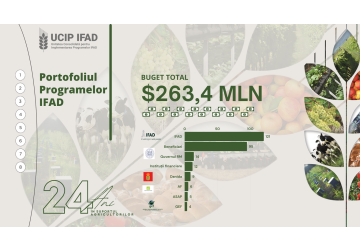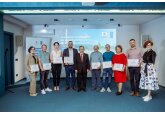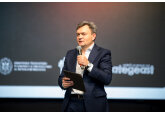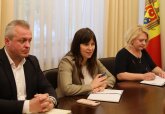
IFAD has invested about $143.5 million, including $23.5 million of grants, in Moldova's agricultural sector over 24 years of activity, and the total amount of supported projects reached about $264 million
As it is noted in the report of the Consolidated Unit for the Implementation of IFAD Programs, Moldova is one of the first countries in the post-Soviet space, which joined the International Fund for Agricultural Development in 1996. On September 25, 2020, the Consolidated Unit for the Implementation of IFAD Programs in Moldova (UCIP IFAD) was established by the governmental decree. From 2000 to date, Moldova has signed 8 financing agreements with IFAD, implementing rural and agricultural development programs necessary to support agriculture and local economy, providing significant support to the most vulnerable population in rural areas Over 24 years of activity, IFAD has invested about $143.5 million in Moldova's agricultural sector, including $23.5 million in grants. The structure of IFAD programs, the multiple targeting aspects, the way of implementation and the recognition of the beneficiaries (farmers) have attracted the interest of other donors as well. Thus, during this period IFAD's efforts in Moldova were complemented by financial sources: the Government of Moldova, partner financial institutions, the Danish International Development Agency (DANIDA), the Global Environment Facility, and the Adaptation for Smallholder Agriculture Programme and the Adaptation Fund. The total amount of implemented projects is about $264 million. As a result of these activities, more than 200 thousand people from rural communities throughout Moldova have received financial and technical assistance A special role in IFAD's activities is given to supporting youth and women from rural areas. Of the total number of beneficiaries, about 35% are young people and women. The actions supported by IFAD have created more than 20 thousand jobs in rural areas, contributed to the prosperity of small agricultural producers and minimized the migration effect. As UCIP IFAD Director Iurie Usurelu noted, IFAD actively supports smallholders by providing them with access to finance in the form of loans and borrowings. About 6,000 smallholders in rural areas have received financial assistance worth more than $120 million. In addition, about 750 grants have been provided to smallholders to build resilience to climate change and reduce the impact of market shocks The funds backed the development of post-harvest infrastructure, sorting and processing of agricultural products, procurement of photovoltaic panels, support for agritourism, and support for the adoption of innovative and environmental technologies Of these, 64 grants were offered for the creation/restoration of protective forest belts on an area of about 700 hectares At the same time, among the notable achievements of the implemented IFAD projects are also the construction or rehabilitation of 147 rural infrastructure facilities, including: construction and repair of 79 road sections with a total length of about 90 km; rehabilitation of 44 irrigation systems on a total area of 9,000 ha; creation and modernization of 16 drinking water supply networks with a length of 58 km; development of 5 agricultural markets and 3 gas supply systems. An important element of IFAD programs is the educational component, knowledge transfer and multidisciplinary management of small-scale producers. Thus, about 6,000 agricultural producers have been trained in the application of agricultural technologies and management practices, including innovative technologies, climate resilience and sustainable agricultural practices, financial and economic management, agriforestry and environmental practices, soil management, etc. To better assimilate agri-technological knowledge and apply it in practice, 11 field schools were established where small farmers had the opportunity to see the results of conservative tillage technologies, principles of irrigation systems application, and horticultural crops cultivation Over the years, UCIP IFAD has supported research and education in the field of agriculture, publishing dozens of scientific and practical papers, which were donated to secondary and higher educational institutions of agricultural profile Also, 133 mayoralties received support to develop local development plans, enabling them to continue raising funds earmarked for local public administrations UCIP IFAD is currently implementing the “Capacity Building for Rural Transformation” (IFAD VIII) project, which supports vulnerable rural populations, especially youth, women and small farmers, by increasing productive capacities, resilience to economic and environmental risks, facilitating access to markets. // 27.09.2024 – InfoMarket







